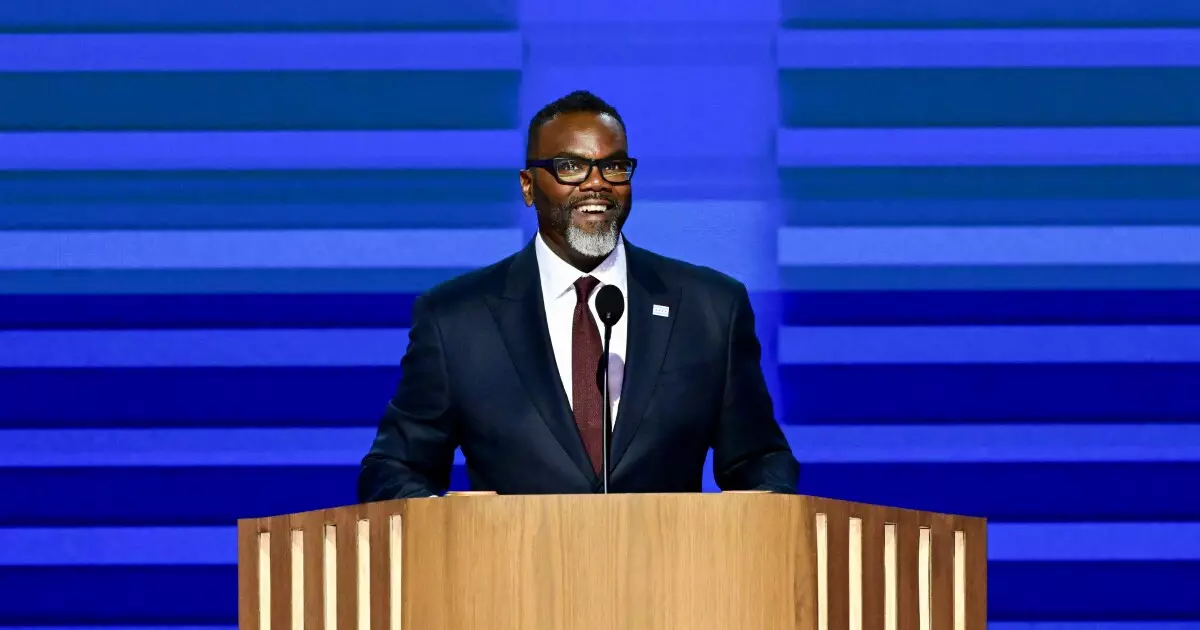Chicago finds itself at a pivotal moment as the Kroll Bond Rating Agency (KBRA) issued a “Watch Downgrade” for the city’s A general obligation bond rating. This critical assessment comes in light of the City Council’s impending vote on a proposed $300 million property tax increase tied to Mayor Brandon Johnson’s budget for 2025. The backdrop to this decision is rather stark—KBRA has cited a projected shortfall of approximately $982.4 million within the corporate fund for 2025. This troubling financial forecast raises multiple alarms about the fiscal health of a city already burdened with ongoing economic challenges.
The specific factors that prompted this rating watch are deeply interwoven with Chicago’s fiscal strategy, or perhaps lack thereof. KBRA has drawn attention to the city’s increasing dependence on ephemeral financial remedies, such as one-time revenue sources, to bridge significant budgetary gaps. These temporary solutions not only camouflage deeper structural issues but also threaten the city’s financial equilibrium, particularly as it grapples with substantial pension obligations and the volatility of economically sensitive revenue streams.
As municipal leaders strive to maintain economic stability, any reliance on non-sustainable funding sources further complicates the situation. This year, a late start to the budget discussions has compounded the urgency, especially given the looming projections pointing to a fiscal deficit. It is crucial to recognize that the proposed property tax hike marks a significant deviation from Mayor Johnson’s previous campaign commitments and has drawn criticism from sources such as the Civic Federation of Chicago.
Indeed, the introduction of the property tax increase, while hailed by some rating agencies as a prudent strategy for generating stable revenue, raises ethical questions about governance principles and voter trust. While Fitch Ratings and S&P Global have emphasized the tax increase as a valuable step in addressing budgetary shortfalls, the ordinary citizen may view this as a betrayal of the administration’s initial promises. This disconnect foreshadows potential political fallout within the administration as residents seek accountability for fiscal decisions that materially affect their livelihoods.
Political Dynamics and Financial Decisions
Last week, a significant portion of the City Council—29 out of 50 aldermen—expressed their desire for a dedicated vote on the tax increase, reflecting growing dissent regarding how the administration is conducting budgetary affairs. Recent reports suggest a potential scaling back of the proposed tax increase in favor of reallocating federal stimulus funds combined with new revenue initiatives. This development raises critical questions about the viability and reliability of these alternative solutions, particularly concerning how they can support Chicago’s long-term financial health amidst rising expenses in pension funding and debt service.
Linda Vanderperre from KBRA emphasized that the agency would closely monitor developments, particularly regarding the budget for fiscal year 2025. The agency’s series of warnings underscore the high stakes involved; a budget that leans excessively on temporary revenue streams does little to shore up Chicago’s financial future. Sufficient consensus between the administration and City Council is paramount, as both sides need to align on workable solutions to achieve the budget deadline of December 31, 2024.
KBRA recognizes some of Chicago’s advantages, including a robust and diverse economic base and healthy reserve balances. Even given these strengths, the agency has flagged potential risks linked to the city’s failure to adhere strictly to its established financial practices. There are clear indicators that a misalignment of financial forecasting could worsen Chicago’s budgetary challenges over time, perpetuating a cycle of financial instability.
A critical observation made by KBRA is the ongoing concern regarding the budget stabilization fund, which is essential for financial planning and sustainability. The fund is designed to cushion the city’s operations against unexpected revenue downturns, but its effective management is in question given recent patterns of budget shortfalls and reliance on transient funding mechanisms.
Looking Ahead: A Call for Responsible Governance
As the deadline for budget approval looms, Chicago finds itself at a crossroads between immediate fiscal pressures and the pressing need for long-term financial reforms. For the administration, it is essential to align political maneuvers with responsible governance, steering away from superficial solutions that do not address the systemic issues at play. A more nuanced approach, involving transparent dialogue with constituents and meaningful engagement with financial experts, could lay the groundwork for restoring confidence in Chicago’s fiscal stability.
Above all, the city must move beyond reactive financial strategies to develop sustainable tax structures and explore diverse revenue avenues that can accommodate the city’s growing needs. As the Council prepares to vote, the attention of bond rating agencies, civic action groups, and citizens alike will be keenly focused on the unfolding narrative of Chicago’s fiscal journey. The implications of these decisions will resonate far beyond City Hall, ensuring that the present budgetary saga is one to watch closely in the months and years ahead.

